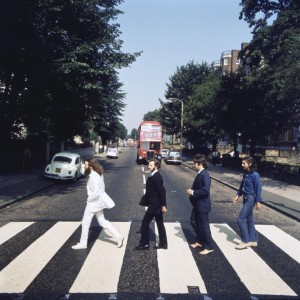by Aaron Ross, news editor
Today marks the 45th anniversary of the U.S. release of “Abbey Road,” the final album recorded by the Beatles. Despite it being released before “Let It Be,” most consider “Abbey Road” to the Beatles’s true final album. At the time of its release, “Abbey Road” met with mixed reviews that criticized it for its “already dated sound.” Nowadays, it garners almost universal critical praise as one of the Beatles’ greatest works.
“Abbey Road” stands out not only as one of the greatest Beatles albums, but as the greatest Beatles album. It has three of the most popular and instantaneously recognizable songs of all time: “Come Together,” “Something” and “Here Comes The Sun,” two of which were written by George Harrison (the underrated Beatle). It has Ringo’s best song (“Octopus’s Garden”), possibly Paul’s most underrated song (“You Never Give Me Your Money”), Lennon’s “heaviest” composition of his career (“I Want You (She’s So Heavy)”) — and that’s just the beginning of the album’s greatness.
But what truly makes “Abbey Road” the Beatles’ best album is its side two medley. The medley consists of nine different songs combined to create a sense of cohesion throughout. Though the songs that make up the medley, like “Golden Slumbers” and “The End”, are not as well-known as other Beatles songs, they perfectly conclude the Beatles’ career: they’re simultaneously sorrowful and full of hope. The album ends with the Beatles’ last message to the world: “and in the end, the love you take is equal to the love you make.”


